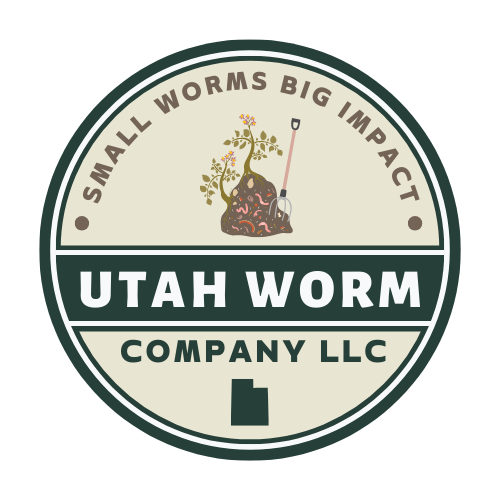The Gold Standard of Soil Health: Why Worm Castings Are Essential for Gardening
Gardeners and horticulturists are always on the lookout for natural ways to improve their plants’ health and boost soil quality. One remarkable solution comes from an unlikely source—worms. Their castings, often referred to as “black gold,” are rich in nutrients and provide a wide array of benefits for plants, trees, and overall garden vitality. Here’s why worm castings deserve a spot in every garden.
Packed with Essential Nutrients
Worm castings are a natural fertilizer packed with the nutrients plants crave—nitrogen, phosphorus, and potassium. These elements are crucial for strong roots, vibrant leaves, and plentiful blooms. What sets worm castings apart is their bioavailability: nutrients are delivered in a form that plants can easily absorb, ensuring steady and sustained nourishment.
Beyond the primary macronutrients, worm castings are also a treasure trove of trace minerals like zinc, calcium, and magnesium. These micronutrients contribute to healthier, more resilient plants, creating a robust ecosystem from the roots up.
A Soil Conditioner Like No Other
When mixed into the soil, worm castings enhance its structure, improving aeration and creating a loamy, crumbly texture. This is a game-changer for plants, as it allows roots to expand easily while ensuring water can flow efficiently. Moreover, worm castings act as a natural sponge, retaining moisture longer, which is especially valuable in dry or drought-prone climates.
Natural Pest and Disease Defense
One of the most surprising benefits of worm castings is their role in pest and disease control. Rich in beneficial microbes, these castings suppress pathogens that can cause root rot, blight, and other plant illnesses. Research shows that plants grown with vermicompost are less susceptible to pests, as the microbes in the castings create an environment that discourages harmful insects.
This natural defense reduces the need for chemical treatments, making worm castings a perfect choice for organic gardening enthusiasts.
Boosts Plant Growth and Yields
Numerous studies highlight the ability of worm castings to increase plant productivity. The gradual release of nutrients ensures that plants receive consistent nourishment, leading to lush foliage, vibrant flowers, and abundant fruit production. Gardeners using worm castings often notice quicker seed germination and healthier, more vigorous plants overall.
Worm Tea: A Liquid Gold for Plants
Worm tea, made from worm castings, is a highly effective liquid fertilizer and soil enhancer. Creating worm tea is simple and yields significant benefits for plants and soil alike.
How to Make Worm Tea
- Add 1 cup of worm castings to a mesh bag or cheesecloth.
- Place the bag in a bucket with 5 gallons of water.
- Optionally, add a tablespoon of unsulfured molasses to the water. This helps feed beneficial microbes in the tea.
- Aerate the mixture for 24–48 hours using an aquarium pump, or simply stir the mixture frequently if you don’t have a pump.
- Strain the liquid and use it immediately on plants, as a soil drench or foliar spray.
Why Worm Tea is Valuable
Worm tea amplifies the benefits of worm castings by delivering a concentrated dose of nutrients and beneficial microbes directly to plants. These microbes improve soil biodiversity, enhance nutrient uptake, and protect plants from diseases. As a foliar spray, worm tea can also boost plant immunity and repel pests, making it a versatile tool in the gardener’s arsenal.
A Sustainable and Eco-Friendly Choice
Using worm castings supports sustainability in gardening. By relying on this organic fertilizer, gardeners can reduce or eliminate the use of synthetic products that harm the environment. Furthermore, vermicomposting recycles kitchen scraps and organic waste into a valuable resource, reducing landfill contributions and promoting a circular, eco-friendly approach to waste management.
Tips for Using Worm Castings in Your Garden
- Top Dressing: Sprinkle a thin layer of worm castings around the base of plants for a nutrient boost.
- Mix into Soil: Blend castings into potting mixes or garden beds to enrich the soil.
- Compost Tea: Use freshly brewed worm tea to deliver nutrients and beneficial microbes directly to your plants.
Incorporating worm castings and worm tea into your gardening routine is an investment in healthier plants, better yields, and sustainable practices. Whether you’re growing vegetables, ornamentals, or towering trees, these tools are the secret weapons for gardeners aiming for thriving, chemical-free gardens.
Don't hesitate to call or text Calvin at Utah Worm Company with any questions you may have on castings or worm tea or if you're ready to begin the fascinating journey of worm farming 435-650-3308.

